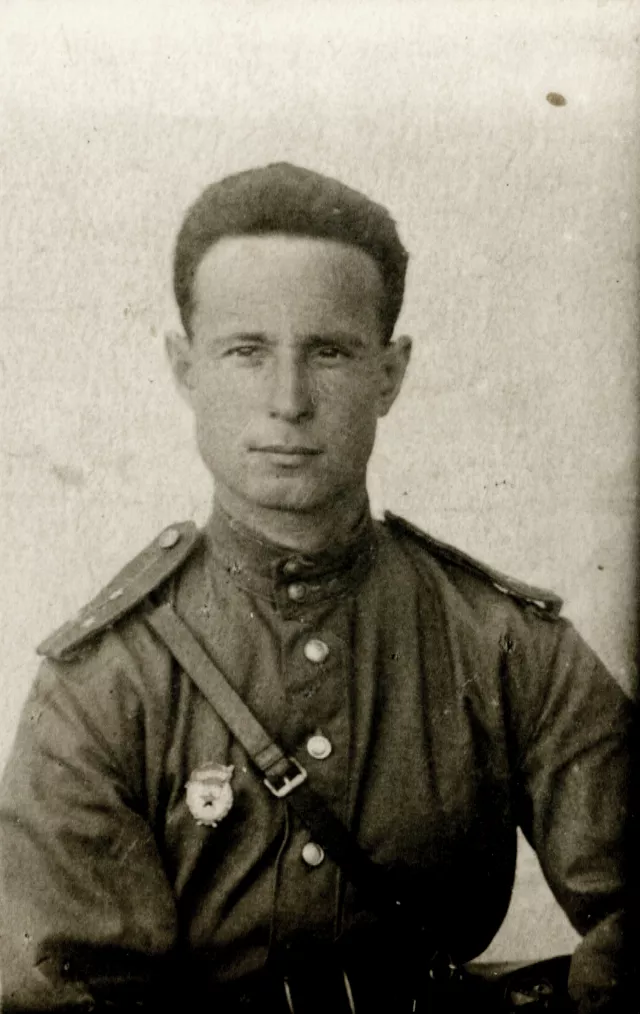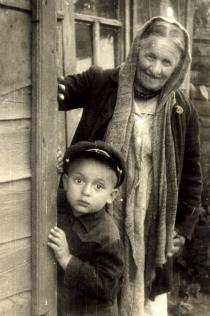Iosif Shubinsky
This is a picture of me taken in 1943 in the village of Tsiganovka, Kursk region, when I was at the front.
I had a radio for some time, but according to the Soviet law I had to turn it in to the authorities. I remember I took it there, but before I gave it away, I was able to listen to Molotov 13 and Stalin, who announced the war. There was no panic; people were simply worried. Then I was called up. I came to the military enlistment committee and was sent to the ammunition warehouse. I worked there for two weeks. We loaded weapons. We left Kiev when the Germans were already very close. My wife went with me. We made two backpacks out of sacks, put them on our backs and went on foot. I remember crossing the bridge across the Dneper. We walked on foot, all the time. We stopped at Glukhov. My wife ate with me. I simply sat her down at my table, and my colleagues didn't object. So she stayed with us. Later I gave her a special paper that proved that she was the wife of a soldier and gave her the right to evacuate. I had no rank at the time. I was just a soldier. There was a group of workers of the Academy of Sciences, who were taught some things about fighting. We learned lubricating oil materials. We were taught by General Yakshin. We were joking that after the Academy of Sciences we entered the Academy of Yakshin.
We retreated and learned at the same time: during the day we retreated, at night we learned. Well, I can't say it was real studying. Anyway, we finished the course and I got my rank as junior lieutenant.
I became commander of a rifle platoon and was sent to Kursk region. The commander of a company was killed and I had no idea what to do! Anyway, since I was sent there, I had to do something. So I went to that company. The soldiers were asleep because it was nighttime. I asked, 'Is anyone here?' An assistant was there. I asked, 'Do you have a list of some sort?' He said, 'No, just these guys, the rest have been killed?'. It was total chaos, nobody knew anything. In the morning an attack started. We began to attack. And I knew nothing, absolutely nothing: who should go where and how. But I went into attack and my platoon followed. I didn't even know who exactly was in my platoon. We came to our destination at dawn. Firing began - the Germans were firing. It didn't last long, only for about 30 minutes. I was wounded very soon. First I didn't even feel it; I only felt warmth. I put my hand to the place that felt warm and saw something red. I realized it was blood and decided to retreat. I saw that other soldiers were retreating as well. The sun was shining and it was frosty.












